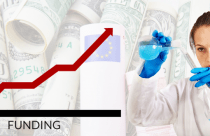European Parliament Announces Plans For EU Research Funding

Research always goes hand-in-hand with funding. Without funding, a country’s science and research cannot progress. The European Union has been providing significant research funding, largely through the Horizon 2020 program. But the scenario has changed after Brexit. EU research funding has been under question since the announcement of Brexit. The discussion is still on. According to the most recent update, the European Parliament is planning to increase research spending to at least €120 billion in the next seven-year EU budget cycle. This EU budget is supposed to come into effect after 2021.
European Parliament’s New Plans
The European Parliament explains that the current €77 billion research programme is no longer enough for the high demands of the applicants. The parliament wants to increase the budget by quite a huge amount, followed by sparing research from spending cuts in 2020. Recently, a number of commissioners and member state ministers have met to discuss the fate of EU funding without UK and having difficult times ahead with Poland and Hungary. The commissioners and the ministers shared a large number of testimonials on increasing the budget for innovation. The speakers were of the opinion that in order to get more research funding, even the researchers have to present some groundbreaking ideas. The research programmes include the work on Framework 9, which has been backlogged for a very long period of time within the scientific community itself. Besides these, the European Parliament is planning to triple the €17 billion Erasmus student exchange budget. Also, the parliament has plans for cohesion funding for poorer regions and common agriculture policy subsidies for farmers.
The Old Promise by EU Ministers
But there had been some promises which were not kept. The EU research ministers had agreed in October that there should be a significant increase in research funding. However, the EU budget for research did not increase. This raised some concerns about progress for Framework 9. This breach of promise on the part of the European Council had come as a great blow for the research community. The Council of Ministers meeting agreed in the end that research should be a priority. They also agreed that significant funds should be set aside for research. The final document did not specifically state the extent of the increase. Estonia’s research minister said the Council meeting was tense. The EU research commissioner, however, has accepted the agreement. He also called for greater investment in research and innovation.
The EU research ministers meeting supported Framework 9 in principle. Framework 9 will focus on green transportation, nanotechnology, and food security among others. The EU research ministers did not say how these goals would be accomplished.
Breach of Promise
The League of European Research Universities and European Association of Research and Technology Organizations (EARTO) supported the text. However, they did not deal with the need for an increased budget. It also failed to address the impact of Brexit. The League urged the ministers to convince their government colleagues to support an increase in research funding. EARTO was in favour of the stated ambition for the EU to spend 3% of its GDP on research and development. EARTO agreed that the principles of Framework 9 should be cooperation, excellence, impact and openness.
This text, however, was not met with approval from some sections of the research community. Science Europe is a group of major research funders and researchers. Its members were not quite happy with the final text of the Council of Ministers meeting. They urged the ministers to go back to their original stand and provide a significant increase in the EU budget for research.
Final Note
But with a concluding note, we can say that the emphasis on funding research has been paying off. European Union firms have increased their investment in R&D. The world’s top 2,500 most research intensive companies increased their R&D investment by 5.8% in 2016. EU companies had an increase of 7%. This growth largely focused on ICT, health, and the automotive sectors.These top 2,500 companies invested €741.6 billion in R&D. EU companies were responsible for about 26% of that, investing €192.5 billion in 2016.
The EU is home to the second largest number of these R&D intensive companies in the world. (About 567 of the companies have headquarters in the EU). With the research funding on the rise and implementation of new plans of the parliament, EU research funding may no longer be an issue.
Is there a way to raise the funds needed for more research and innovation? What do you think the UK should offer the EU to continue to be part of its Framework programs? Please share your thoughts with us in the comments section below.







